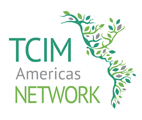Delegates from American countries participate in Workshops on Quality of Healthcare Services in Traditional and Complementary Medicine (Macao, SAR, People´s Republic of China)
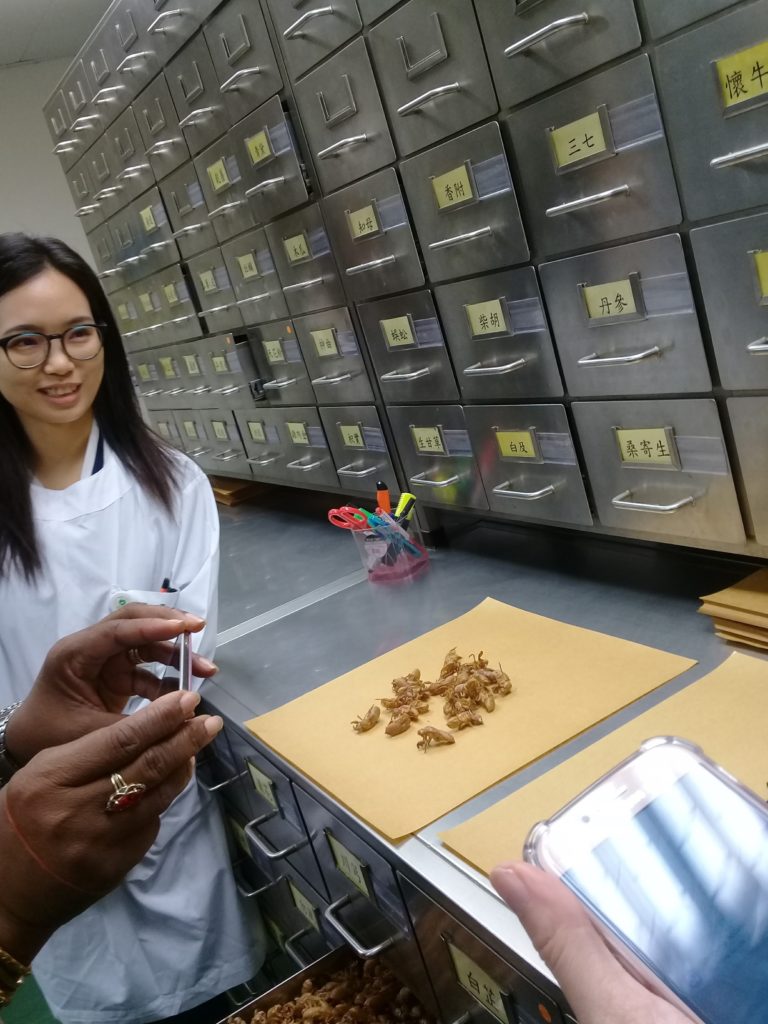
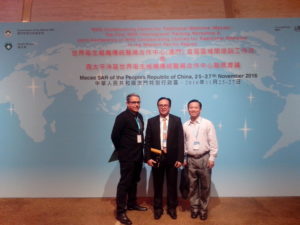 Aiming to share experiences and advance in designing mechanisms to improve and ensure quality of healthcare services in Traditional and Complementary Medicine (TCM), the World Health Organization held two workshops in the Special Administrative Region (SAR) of Macao, People´s Republic of China. Delegates from Chile, Cuba, Nicaragua and Peru represented the Region of the Americas.
Aiming to share experiences and advance in designing mechanisms to improve and ensure quality of healthcare services in Traditional and Complementary Medicine (TCM), the World Health Organization held two workshops in the Special Administrative Region (SAR) of Macao, People´s Republic of China. Delegates from Chile, Cuba, Nicaragua and Peru represented the Region of the Americas.
The first workshop, in November 2016, was opened by Dr. Margaret Chang, former WHO General Director, and was attended by delegations of 17 countries from all regions of the world. Over 20 countries took part in the second workshop, in July 2017. The delegates presented a diagnosis of the situation in their countries in each workshop, and participated in different working sessions, aiming to find solutions for the critical aspects in each context. A result from this work is a technical document (currently under revision), which will enable preparing an agenda to promote quality of TCM products, practices and professionals in the healthcare systems of the WHO Member States.
The delegates of the American countries shared their perceptions during the workshops. Dr. Martha Villar, Manager of Complementary Medicine – Social Security of Peru (EsSalud), reported “it was transcendent to share experiences, and to develop workshops on several perspectives of quality improvement: human resources and its profiles and competences; standardization of policies, laws and norms; decisions based on relevant information; safety of products; and report and detailed discussion of diverse experiences.”
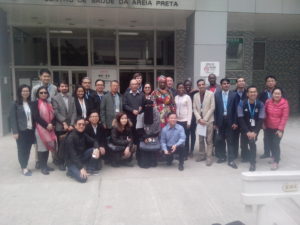 Carmen Julia Cerda, Technical Advisor of the Department of Pharmaceutical Policies and Regulations of Healthcare Providers and Complementary Medicines, from the Chilean Ministry of Health, said that the experience was very relevant, and highlighted the methodology proposed for the workshops, since “it enables sharing experiences with colleagues form other regions, and enriched the ongoing processes in the Region of the Americas.” She commented that participating in the workshop contributed to broadening her mind, and added “the cultural diversity of participants – from Asia, Europe, Africa and America, allowed us to learn about other experiences, with their particular aspects, of realities we do not know; even though, we could recognize some common elements”.
Carmen Julia Cerda, Technical Advisor of the Department of Pharmaceutical Policies and Regulations of Healthcare Providers and Complementary Medicines, from the Chilean Ministry of Health, said that the experience was very relevant, and highlighted the methodology proposed for the workshops, since “it enables sharing experiences with colleagues form other regions, and enriched the ongoing processes in the Region of the Americas.” She commented that participating in the workshop contributed to broadening her mind, and added “the cultural diversity of participants – from Asia, Europe, Africa and America, allowed us to learn about other experiences, with their particular aspects, of realities we do not know; even though, we could recognize some common elements”.
Dr. Johann Perdomo, Head of the Program of Natural and Traditional Medicine, of the Ministry of Public Health of Cuba, commented that, during the workshop, the importance of including a chapter on Traditional Medicine in the 11th version of the International Classification of Diseases, was underlined. He stated “as an important step of international progression and acknowledgement of these medicines, and of a tool that can contribute in different ways to improve quality of healthcare services in TCM”.
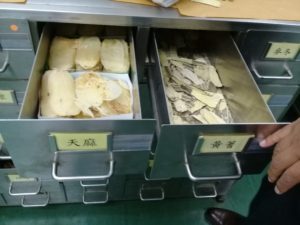 During the workshop, some crucial aspects related to quality of services were addressed, including practices, professionals and products. Quality is a fundamental axis in healthcare; it is an element that must permeate the systems, contributing to services to educate, give relief and provide interventions that meet the care needs of individuals, regardless of the type of medicine practiced. Quality management implies changing services through learning and permanent improvement to meet the needs and expectations of individuals; hence, services will really be people-centered.
During the workshop, some crucial aspects related to quality of services were addressed, including practices, professionals and products. Quality is a fundamental axis in healthcare; it is an element that must permeate the systems, contributing to services to educate, give relief and provide interventions that meet the care needs of individuals, regardless of the type of medicine practiced. Quality management implies changing services through learning and permanent improvement to meet the needs and expectations of individuals; hence, services will really be people-centered.
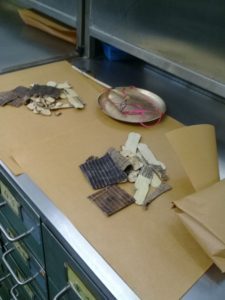 The workshop included an analysis of the global situation of traditional and complementary medicine services, addressing national policies, regulatory aspects (of practices, professionals and products), education and protection of users, as well as patient safety. The bases of these processes were analyzed to advance towards integrating TCM to health services and systems in the countries, which do require broad participation of several social players and sectors. The advances of countries towards improving quality of health services in TCM vary much.
The workshop included an analysis of the global situation of traditional and complementary medicine services, addressing national policies, regulatory aspects (of practices, professionals and products), education and protection of users, as well as patient safety. The bases of these processes were analyzed to advance towards integrating TCM to health services and systems in the countries, which do require broad participation of several social players and sectors. The advances of countries towards improving quality of health services in TCM vary much.
The delegates from the Region of the Americas put forward in the TCM workshops that it would be important to organize such events in our region. The goals would be to continue to progress towards Universal Health, and carry on taking advantage of opportunities for horizontal collaboration and networking. These activities started in the Regional Meeting, organized by PAHO in Managua, Nicaragua, in 2017, which led to establishing the TCM Regional Network. According to Dr. Margaret Chang, “traditional medicine, with proven quality, safety and efficacy, contributes to assure access of all individuals to health care”.


